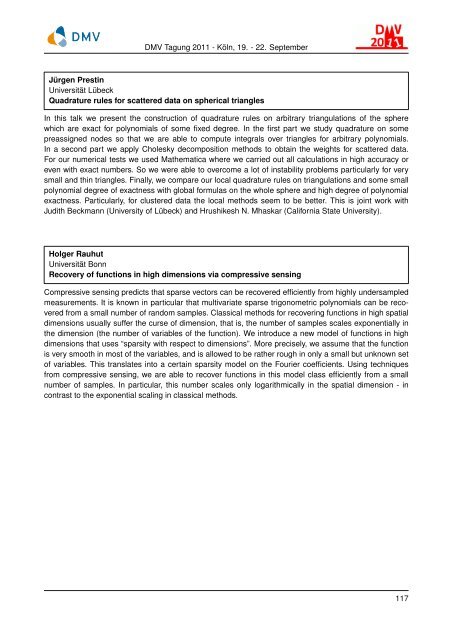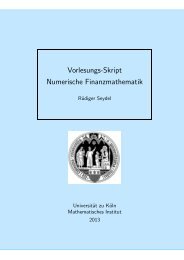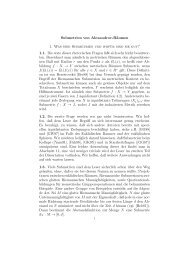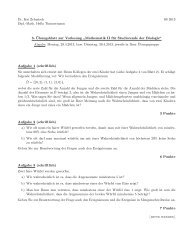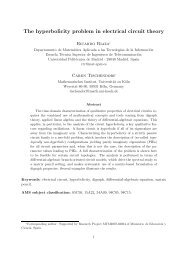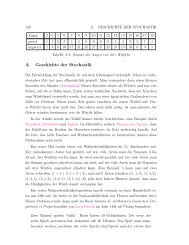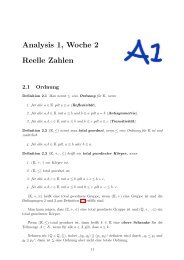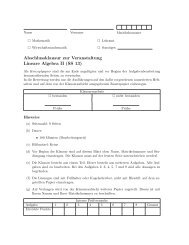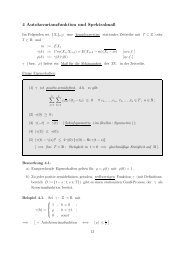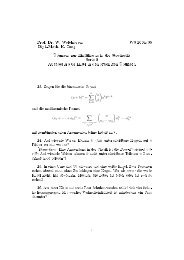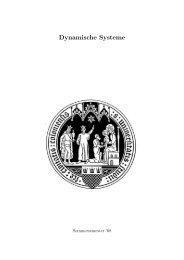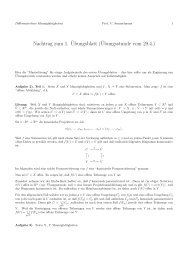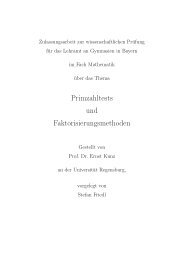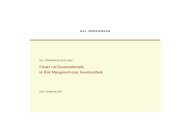Inhaltsverzeichnis - Mathematisches Institut der Universität zu Köln
Inhaltsverzeichnis - Mathematisches Institut der Universität zu Köln
Inhaltsverzeichnis - Mathematisches Institut der Universität zu Köln
Create successful ePaper yourself
Turn your PDF publications into a flip-book with our unique Google optimized e-Paper software.
DMV Tagung 2011 - <strong>Köln</strong>, 19. - 22. September<br />
Jürgen Prestin<br />
<strong>Universität</strong> Lübeck<br />
Quadrature rules for scattered data on spherical triangles<br />
In this talk we present the construction of quadrature rules on arbitrary triangulations of the sphere<br />
which are exact for polynomials of some fixed degree. In the first part we study quadrature on some<br />
preassigned nodes so that we are able to compute integrals over triangles for arbitrary polynomials.<br />
In a second part we apply Cholesky decomposition methods to obtain the weights for scattered data.<br />
For our numerical tests we used Mathematica where we carried out all calculations in high accuracy or<br />
even with exact numbers. So we were able to overcome a lot of instability problems particularly for very<br />
small and thin triangles. Finally, we compare our local quadrature rules on triangulations and some small<br />
polynomial degree of exactness with global formulas on the whole sphere and high degree of polynomial<br />
exactness. Particularly, for clustered data the local methods seem to be better. This is joint work with<br />
Judith Beckmann (University of Lübeck) and Hrushikesh N. Mhaskar (California State University).<br />
Holger Rauhut<br />
<strong>Universität</strong> Bonn<br />
Recovery of functions in high dimensions via compressive sensing<br />
Compressive sensing predicts that sparse vectors can be recovered efficiently from highly un<strong>der</strong>sampled<br />
measurements. It is known in particular that multivariate sparse trigonometric polynomials can be recovered<br />
from a small number of random samples. Classical methods for recovering functions in high spatial<br />
dimensions usually suffer the curse of dimension, that is, the number of samples scales exponentially in<br />
the dimension (the number of variables of the function). We introduce a new model of functions in high<br />
dimensions that uses “sparsity with respect to dimensions”. More precisely, we assume that the function<br />
is very smooth in most of the variables, and is allowed to be rather rough in only a small but unknown set<br />
of variables. This translates into a certain sparsity model on the Fourier coefficients. Using techniques<br />
from compressive sensing, we are able to recover functions in this model class efficiently from a small<br />
number of samples. In particular, this number scales only logarithmically in the spatial dimension - in<br />
contrast to the exponential scaling in classical methods.<br />
117


